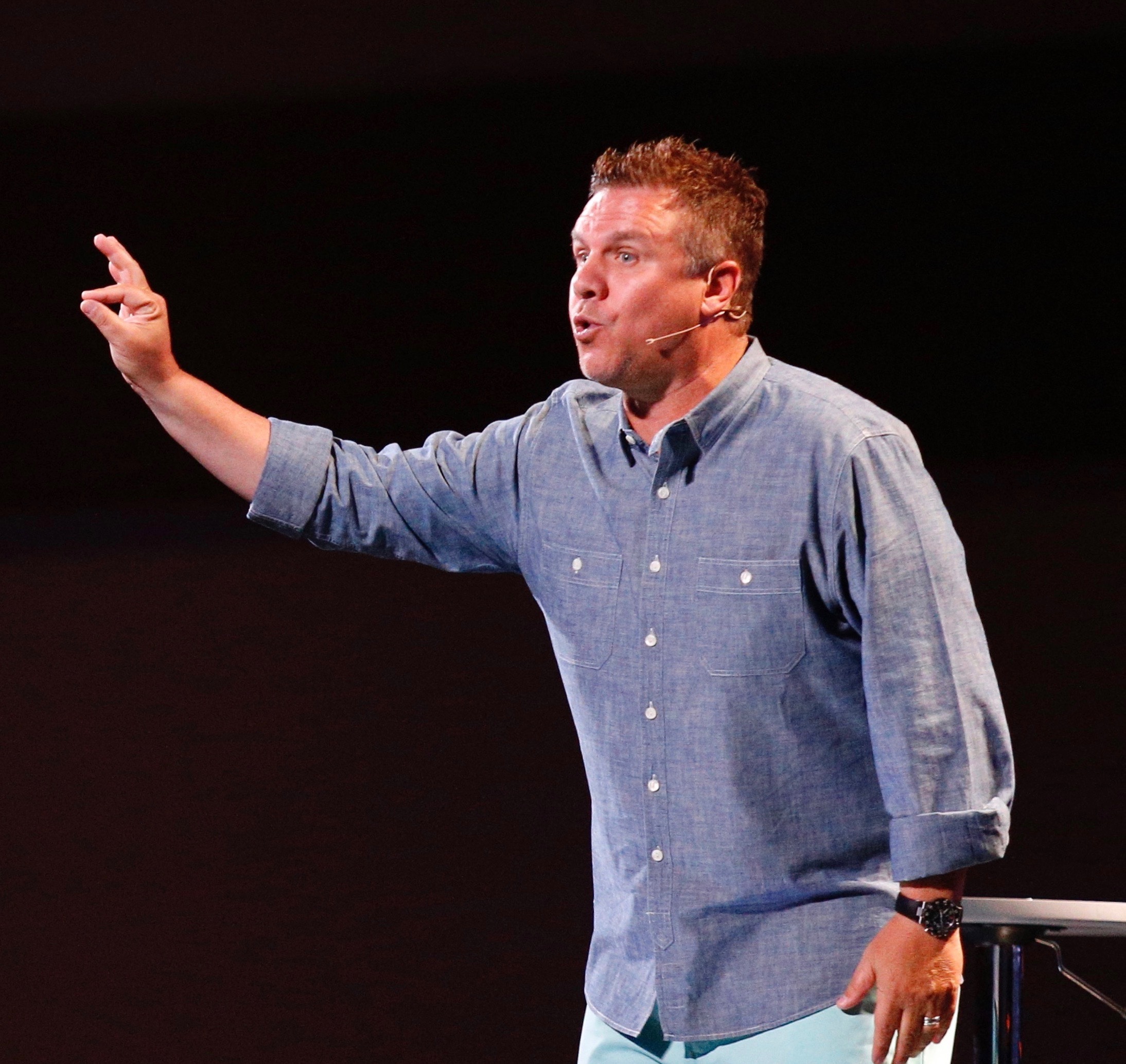
How do we give our teenagers something to do—not just a list of things to stay away from? How do we give them opportunities to collaborate with their family, serve their community, and discover how God has uniquely wired them to influence the world around them? What would a list of things they can do look like?
In other words, how can we help find the answer to this question: Why is my teenager on the planet and how do they matter for what really matters?
Such shallow, inconsequential queries.
The problem with such a great question is that having a teenager is kind of like living in a haunted house.
Every now and then you’ll see a figure out of the corner of your eye, followed by a moaning sound, and then a door will slam shut. And braving the apparition behind that slammed door is like taking a trip to Ikea: you go in just to take a look around and end up walking out with eight cups, four plates, three bowls, a couple of towels, and some silverware.
It’s like a Swedish ghost invaded your home.
I think it’s far more important to ask the right questions than it is to have a bunch of answers that don’t apply. Here are just a few questions for you to ask yourself and your high schooler about your high schooler . . .
How can we expand their world and our dinner table?
A shark in a fish tank will grow to eight inches. A shark in the ocean will grow to be eight feet or more. A shark will never outgrow its environment. The same is true about your high schooler. The more we expand their world, the more ability they have to see and feel what makes them come alive. Expand your dinner table with diversity and different points of view. To whatever extent possible, travel—even if it’s within your local community to understand its history and stories. Become a reader, and invite your teenager to join you. Help them to hear and listen to different voices.
How can we make sure they’re second-best?
Second-best? Yes. This seems counterintuitive, but Kellee and I have experienced its power. Want to find out if your teenager’s gifting is also their passion? Make sure they’re surrounded by people who are just as gifted, if not more. Yes: teenagers need wins under their belt, but if all they do is win, they’re not learning anything about themselves. We didn’t want our children to be the smartest, most talented, fastest, most athletic, the best. And being willing to change the landscape allowed our teenagers (and us as parents) to gauge where gifting was overshadowing a lack of passion.
Who is relying on our teenager?
The thing that kids need most is to feel like they matter. By “matter” we mean the extent to which we make a difference in the world around us. People matter for three reasons: awareness (I am known), importance (I am significant), and reliance (someone is counting on me). One of the most interesting parts of the research we’re uncovering as it relates to the next generation: The next generation feels awareness and importance. What they don’t feel is reliance: being needed. Most of us as parents are pretty good at the first two. Reliance is a great revealer of passion and purpose.
Is our teenager an intricate part of a team?
Because reliance is such a powerful revealer, we think it’s critical that the next generation joins a group, team, or initiative where their gifting and presence are relied upon. It makes sense why teenagers would rather miss church than miss band practice, drama rehearsal, a job, or their athletic team practice or games. In those contexts, they’re relied upon. Their absence has consequences detrimental to the greater good and the whole. Serving meets this need as well, but we strongly recommend some sort of team initiative that intertwines and includes diversity. Collaboration reveals passion and purpose.
Are we letting our teenager fail?
As parents, we want two contradictory goals: We want our kids to never feel pain, and we want our kids to have the character that only comes from pain. To balance this correctly means you’ll have to resist the urge to prepare the path for your child, and instead prepare your child for the path—whatever that path may be. Failure reveals passion and purpose.
Please hear me say this with every ounce of love and compassion in me: Your teenager cannot forge their own path using somebody else’s map. God has not given your teenager your vision for their life. If He has, maybe it’s not God your teenager is listening to. Your high schooler will love and honor you as their parents by becoming the best version of the person God created them to be. It’s not your high schooler’s responsibility to become who you want them to be.
Our job is to love and guide them as they become who God wants them to be.
Our love doesn’t need to be perfect.
It just needs to be true.




